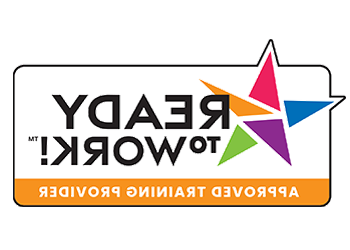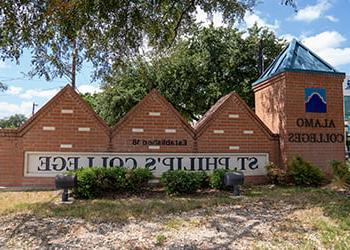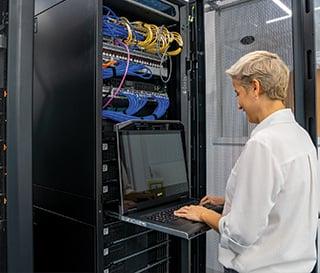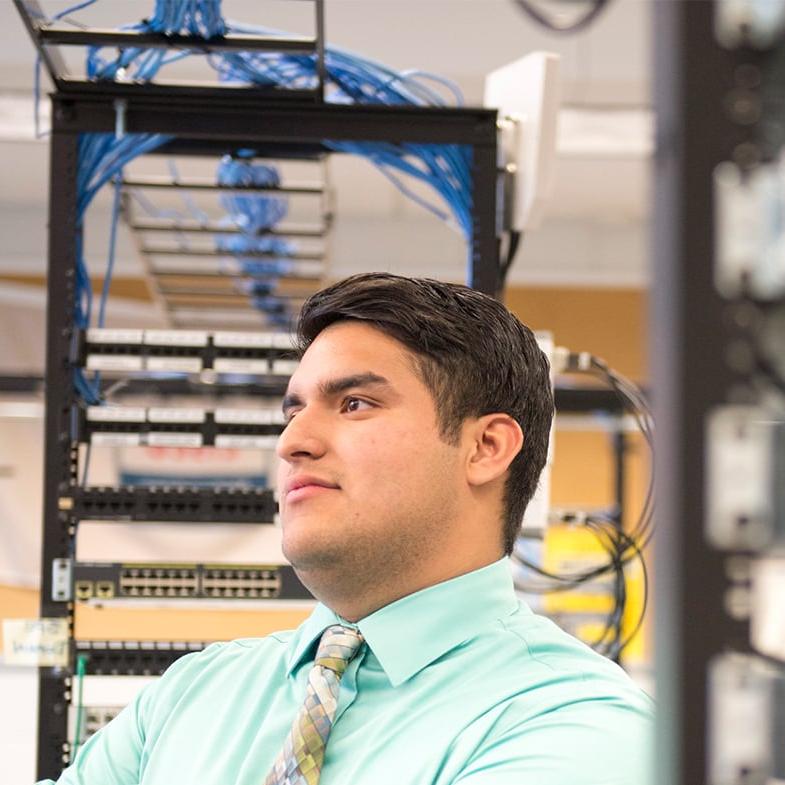
Biomedical Engineering Technology
Apply knowledge of engineering, biology, chemistry, computer science, and biomechanical principles to the design, development, and evaluation of biological, agricultural, and health systems and products, such as artificial organs, prostheses, instrumentation, medical information systems, and health management and care delivery systems.
|
Jobs available locally 104 |
Demand Locally +2 % |
Annual Wage Range $69,992 – $130,624 |
Test, adjust, or repair biomedical or electromedical equipment.
|
Jobs available locally 626 |
Demand Locally +3 % |
Annual Wage Range $34,217 – $81,165 |
Apply theory and principles of mechanical engineering to modify, develop, test, or adjust machinery and equipment under direction of engineering staff or physical scientists.
|
Jobs available locally 141 |
Demand Locally +5 % |
Annual Wage Range $39,141 – $87,746 |
Program Level:
Degrees, Certificates
Department:
Health Sciences and Histology
Institute:
Health & Biosciences, Science & Technology
College:
SPC
What is the Biomedical Engineering Technology program?
The Biomedical Engineering Technology program aims to equip graduates of the associate degree with comprehensive knowledge, techniques, skills, and practical experience using modern healthcare engineering technology equipment. This program is designed to prepare students for various roles, including equipment planning, purchasing, installation, maintenance, troubleshooting, and providing on-call technical support for medical device technology and systems. This includes medical devices integrated with Local Area Network (LAN), Wide Area Network (WAN), WiFi, and Bluetooth capabilities. The curriculum focuses on essential subjects such as electronics, anatomy & physiology, medical equipment operation & troubleshooting, healthcare safety, and clinical information systems.
What will I learn?
You can gain a comprehensive set of skills and knowledge related to the field in Biomedical Equipment Maintenance, Biomedical Engineering Technology, Medical Device Technology, Electronics and Instrumentation, Anatomy and Physiology, Healthcare Regulations and Standards, Medical Imaging and Diagnostic Systems, Biomedical Engineering Ethics, Interdisciplinary Communications and Collaboration, and Professional Development.
What can I do with this course of study?
Upon completion of the associate degree curriculum, graduates will demonstrate competency in the following areas:
- Understanding the interaction between medical equipment and the human body.
- Applying principles of medical equipment, conducting safety and operational tests, utilizing test results to enhance processes, and ensuring proper functioning and safety of equipment with appropriate documentation.
- Applying information technology principles to medical equipment systems, including knowledge of data security and privacy standards.
- Identifying potential unsafe conditions associated with the use of medical equipment and systems, and implementing preventive and corrective actions, including risk mitigation strategies.
With this award, you may seek jobs such as:
Biomedical Equipment Technician, Biomedical Engineering Technician, Clinical Engineering Technician, Field Service Engineer, Medical Equipment Sales Representative, Clinical Application Specialist, Biomedical Engineering Technician, Healthcare Technology Manager, Quality Assurance Engineer, Laboratory Equipment specialist, Radiological Equipment Specialist, and Biomedical Informatics Specialist
What's special about the program?
Graduates can be employed in federal, state, county, and private healthcare facilities, as well as biomedical engineering research facilities. This degree will help you prepare for the ACI - AAMI Credentials Institute Healthcare Technology Management exams for biomedical equipment technicians and clinical engineers. CABT- Certified Associate in Biomedical Technology, CBET- Certified Biomedical Equipment Technician, CLES Certified Laboratory Equipment Specialist, CRES- Certified Radiological Equipment Specialist, CCE- Certified Clinical Engineer is supported through the HTCC/USBECE (Healthcare Technology Certification Commission/U.S. Board of Examiners for Clinical Engineering Certification).
Graduates are employed in federal, state, county, and private healthcare facilities, as well as biomedical engineering research facilities.
Application Process: Applications for admission to the Biomedical Engineering Technology program (BMET) are accepted throughout the year. It is recommended students submit a completed application packet as soon as possible. For consideration, the Fall semester class packet must be submitted by August 1st.
Applications are reviewed and processed before the Fall semester for consideration for the next available class/cohort. Failure to complete and submit all requested paperwork before August 1st, before the start of the Fall semester, may result in forfeiture of placement within the program.
Selection Process
After careful review of all applicants by the program director and faculty, applicants who are selected will be notified by email of their acceptance or nonacceptance into the program. If you are accepted, you will be emailed an acceptance letter. Please be aware that to be accepted into the program, you will complete your criminal background check and drug screen before practicum rotation.
No person shall, based on race, color, sex, pregnancy, religion, creed, national origin (including ancestry), citizenship status, physical or mental disability, age, marital status, sexual orientation, gender, transgender status, gender identity, gender expression, veteran or military status (including special disabled veteran, Vietnam-era veteran, or recently separated veteran), predisposing genetic characteristics, domestic violence victim status, any other protected category under applicable local, state or federal law, or persons who have opposed discrimination or participated in any complaint process on campus or before a government agency, be excluded from participation in, denied the benefits of, or subjected to discrimination in employment or under any program or activity sponsored or conducted by the College District. H.1.1
Degrees and Certificates
St. Philip's College programs offer the following degree(s) and certificate(s). View our Course Catalog for more information.

Contact Us
|
Jemal Nelson Program Director |
MLK : Applied Science Building (ASB), 234E |
 |
 |
One or more of these programs are approved Ready to Work programs. Find out if you’re eligible to receive free tuition and job placement services that will enable you to secure an in-demand career. |




